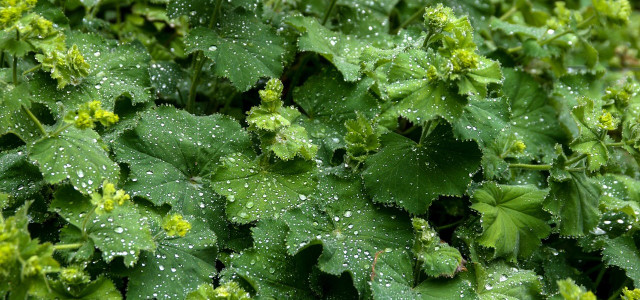
Lady’s mantle tea is one of the medicinal teas, especially because of its helpful effect on menstrual or menopausal symptoms. We’ll tell you what else you can use the herb for.
Lady’s mantle (Alchemilla) is a relatively widespread plant in our latitudes and is used as ground cover in many gardens. As the name suggests, it is a medicinal herb that is traditionally used for women’s ailments. But it’s not just women who can benefit from its effects.
The effects of lady’s mantle tea for women

(Photo: CC0 / Pixabay / Free Photos)
The plant has been used in gynecology for centuries and is also known as women’s herb. Studies have come to the conclusion that lady’s mantle has an antioxidant, anti-inflammatory and wound-healing effect, among other things because of the flavonoids and triterpenes it contains. However, further studies are needed to find out exactly how lady’s mantle actually works and for which complaints.
Lady’s mantle tea is traditionally used for women for the following problems:
- Lady’s mantle tea is recommended for pelvic inflammation, menstrual cramps and premenstrual mood swings (PMS). According to the Deutsche Apothekerzeitung, there is no assessment of the effect by the European Medicines Agency.
- The tea is also said to help with fertility problems, additional bleeding (metrorrhagia) and menopausal symptoms. However, this has not been scientifically proven.
- Lady’s mantle tea is also used when you want to have children because it can have a balancing effect on the cycle regulation in the female hormonal balance.
- But lady’s mantle tea is also very helpful after birth: in this phase it is said to support the flow of milk and the healing process of injuries that occurred during birth.
If you are unsure how and when you should use lady’s mantle tea, you can contact your gynecologist.
Leaderboard: The best organic tea
-
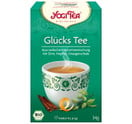 1st placeYogi Tea Tea
1st placeYogi Tea Tea
5.0
41
DetailRewe**
 2nd placeSonnentor tea
2nd placeSonnentor tea
4.9
36
DetailSonnentor**
 3rd placeTree of life tea
3rd placeTree of life tea
4.8
29
DetailFair Shopping**
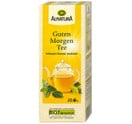 4th placeAlnatura tea
4th placeAlnatura tea
4.6
42
DetailAmazon**
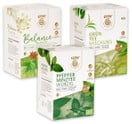 5th placeGepa tea
5th placeGepa tea
4.7
22
DetailPackage**
 6th placeTea Campaign Tea
6th placeTea Campaign Tea
4.9
10
detail
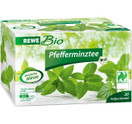 7th placeRewe organic tea
7th placeRewe organic tea
4.3
15
DetailRewe**
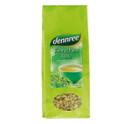 8th placeDennree tea
8th placeDennree tea
4.5
6
DetailAmazon**
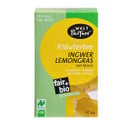 9th placeWorldPartner organic tea
9th placeWorldPartner organic tea
4.6
5
detail
 10th placeHerbaria tea
10th placeHerbaria tea
5.0
3
DetailShop Pharmacy**
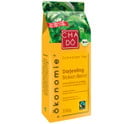 11th placeCha Do tea
11th placeCha Do tea
5.0
2
DetailAmazon**
 12th placePukka tea
12th placePukka tea
3.3
7
DetailFrog Coffee**
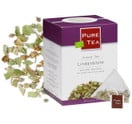 13th placePure Tea Tea
13th placePure Tea Tea
3.8
4
DetailAmazon**
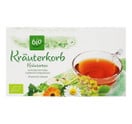 14th placeAldi Süd & One World organic tea
14th placeAldi Süd & One World organic tea
5.0
1
detail
 15th placeCaámate mate tea
15th placeCaámate mate tea
5.0
1
DetailEbay**
 16th placetea alternative Assam tea
16th placetea alternative Assam tea
5.0
1
detail
Lady’s mantle tea: This is how the medicinal herb also helps
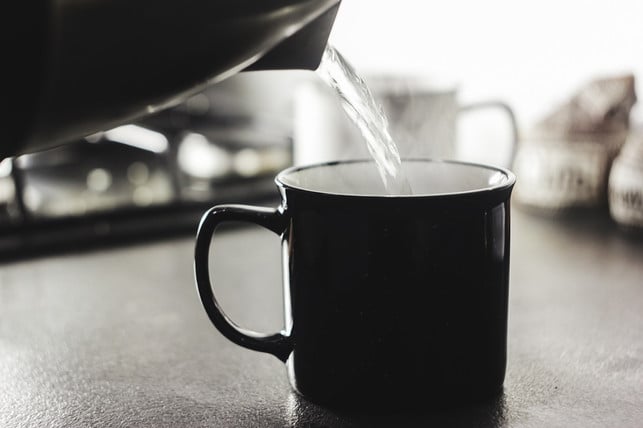
Lady’s mantle tea helps with inflammation.
(Photo: CC0 / Pixabay / Abbat1)In addition, lady’s mantle herb has numerous other positive effects – regardless of gender. However, not all of them have been proven so far, or more research results are needed. This is how lady’s mantle tea can help:
- As already mentioned, lady’s mantle has anti-inflammatory and antibacterial, antioxidant and antispasmodic effects.
- Lady’s mantle tea is also recommended for gastrointestinal problems, as confirmed by a 2020 study on the traditional use of the plant. The tannins they contain cause the intestinal mucosa to contract, making it harder for bacteria to penetrate. That’s why the tea can help with mild diarrhea.
- The tea from the perennial plant can have a relaxing effect.
- If there is irritation of the mucous membranes in the mouth and throat, it can help to gargle with lady’s mantle tea because of its anti-inflammatory effect.
- In the genital area, the tea is recommended – especially for women – as a sitz bath, while you can also use it as a compress for wounds and weeping eczema.
- In addition, lady’s mantle is said to have a positive effect on obesity, cardiovascular problems and diabetes, which has also been proven.
- The herb is also recommended for varicose veins – it is said to cleanse and thin the blood.
Harvest lady’s mantle wild
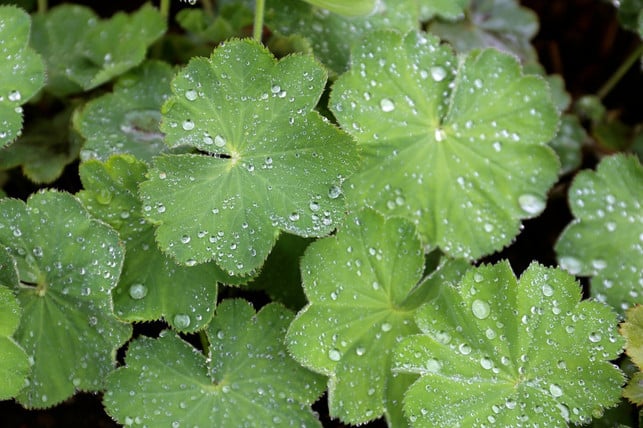
The distinctive leaves of the lady’s mantle plant are the basis of lady’s mantle tea.
(Photo: CC0 / Pixabay / a-mblomma)You can find lady’s mantle plants mainly in moist meadows, in open forests and along ditches. The fully grown perennial is between ten and 50 centimeters high. It bears yellow-greenish flowers from May to August, while the seven to eleven-lobed, circular leaves are hairy and jagged at the edges. It is best to harvest the herb early in the morning during the flowering period from May to August. To do this, simply cut off the entire herb slightly above the ground. But make sure that you only harvest part of the crop so that the plant can reproduce again.
Then cut the herb into small pieces or just pluck off the leaves before drying the plant parts in an airy and shady place. Of course, you can also prepare lady’s mantle tea from the fresh leaves.
Grow your own lady’s mantle
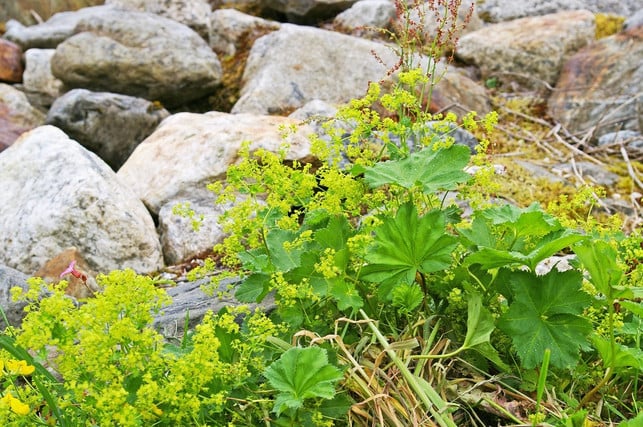
Lady’s mantle also grows in the garden,
(Photo: CC0 / Pixabay / KRiemer)You can also easily grow lady’s mantle in your own garden. The herb is undemanding and undemanding.
This is what you need for cultivation:
- It’s best to choose a sunny location. But a partially shaded spot is still suitable.
- Lady’s mantle prefers moist, humus-rich and nutrient-rich soil with a neutral pH value.
-
However, the plant cannot tolerate waterlogging.
Alternatively, you can buy lady’s mantle tea in a health food store or pharmacy, although you should always prefer organic quality. This will help you avoid products that may contain residues of toxic pesticides.
Preparation of lady’s mantle tea
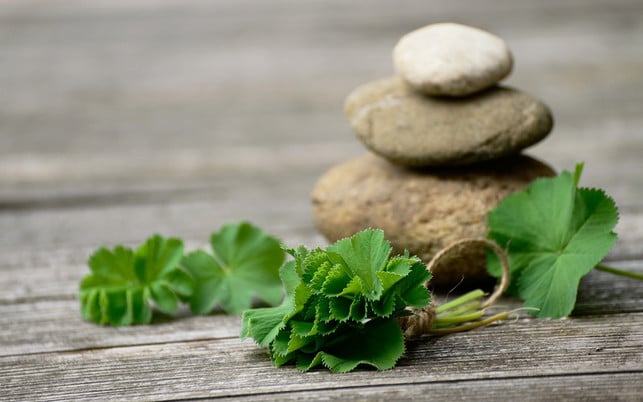
You can make lady’s mantle tea from fresh or dried leaves.
(Photo: CC0 / Pixabay / congerdesign)If you want to prepare lady’s mantle tea, you should follow the following steps. This is how you can make tea with fresh or dried leaves:
- For each cup (250 milliliters) of lady’s mantle tea, pour hot water over one to two teaspoons of the herb. For a whole jug with one liter of water, that would be around three to four teaspoons. According to the package leaflet, you should not drink more than three to five cups per day.
- Let the tea steep for about ten minutes before straining the herb or removing your infuser.
If you have symptoms, drink a cup of lady’s mantle herb three to four times a day. The tea is said to be particularly effective if you drink it in sips throughout the day. If in doubt, seek medical advice before use and dosage.
Read more on Techzle\.com:
- Nausea during pregnancy: These natural remedies help
- 8 wild herbs that you can collect in autumn
-
Chamomile tea: Everything about the effects of the medicinal plant
Edited by Lea Hermann
** marked with ** or orange underlined Links to sources of supply are partly partner links: If you buy here, you are actively supporting Techzle\.com, because we then receive a small part of the sales proceeds. More info.
Recent Articles
Related Stories